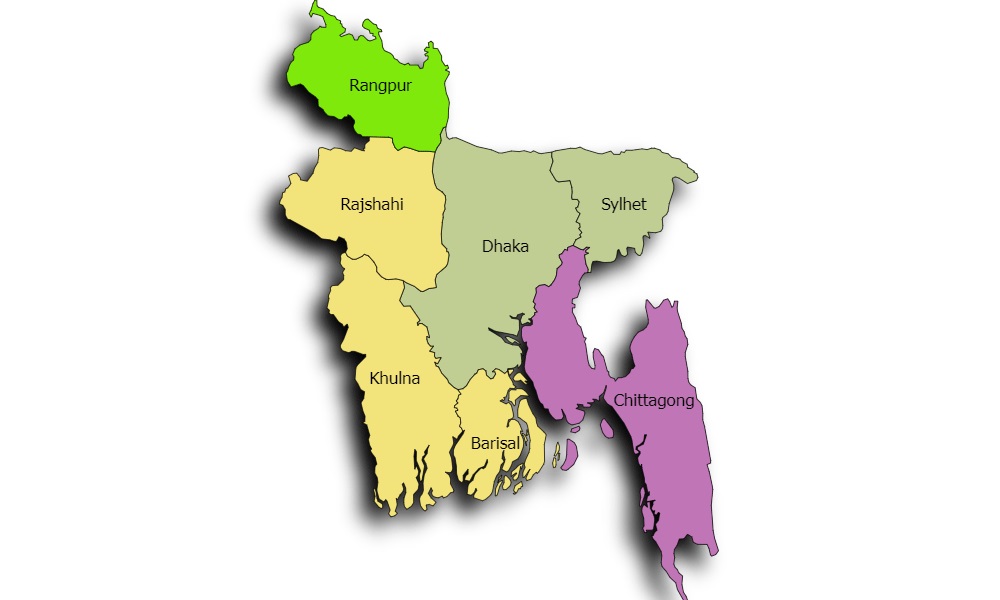Consistency in Balance of Power
Bangladesh, as a developing country with a strategic location in South Asia, faces numerous challenges in crafting and maintaining a balanced and consistent strategic and defensive policy, especially in the context of frequent political regime changes or for being ruled by an autocrat over a longer period of time. Therefore, to establish and maintain a robust balance of power, Bangladesh must develop a policy framework that ensures its national security and foreign policy objectives remain stable and are not subject to drastic shifts with leadership changes. Here’s how the country can achieve such a balance, along with the democratic practices needed to uphold this continuity:

Building National Consensus on Defence and Strategic Policies
One of the key steps Bangladesh can take to ensure continuity in its strategic and defensive policy is to create a broad-based national consensus on these matters. By fostering agreement across political parties, civil society, the military and key stakeholders, Bangladesh can ensure that its defence and strategic policies transcend political differences and remain focused on national interests rather than the interests of a particular political regime or local or dependent foreign influencer. To achieve that goal, political parties should engage in discussions to agree on core principles of national security, defence and foreign policy that all parties respect, even when leadership changes. The establishment of non-partisan institutions like a National Security Council comprised of representatives from various political parties, military officials, academicians, and analytical experts can serve the purpose. Moreover, authentication and fixing jurisdiction by law is a very important factor. Important national security and defence policies should be codified into law or incorporated into the constitution so that they remain binding across successive governments. This legal backing will reduce the likelihood of abrupt policy changes due to shifting political winds.
Strengthening Civil-Military Relations
A balanced and independent defence policy must be supported by healthy civil-military relations, where the military remains subordinate to civilian leadership but plays a significant key role in ensuring national security. In Bangladesh’s case, this balance must be carefully managed to prevent politicisation of the armed forces while ensuring the military’s professional input on strategic matters. In this case, Military law should also be changed to protect purposeful proclivity, meaning legally safeguarding the forces personnel from a tendency to choose a party or person in power or an inclination or predisposition towards a particular regime on purpose. This can be achieved by providing the armed forces with stable leadership that is insulated from political pressures. In the decision-making role, military leaders should be chosen and placed mainly focusing on loyalty, knowledge and untempered real-time analysis capability to add value to the national defence policy. Regular communication and cooperation between civilian policymakers and military leadership can ensure that strategic and defence policies reflect both political and defence considerations, avoiding any unnecessary major shifts when regimes change. In addition, military procurement and defence strategies should be based on long-term needs and should be developed with input from professionals in the defence sectors, rather than being subjected to the whims of changing governments or personal economic gain.
Strategic Partnerships and Diplomacy
For a smaller nation like Bangladesh, maintaining a balance of power often requires strategic partnerships with other nations to bolster national security and ensure stability in foreign policy. However, these relationships should be managed in a way that supports Bangladesh’s sovereignty and aligns with its long-term national interests, rather than being overly influenced by one regime or political alignment. Bangladesh should avoid over-reliance on any one foreign power. Instead, it can pursue a strategy of balancing relationships with multiple major powers, such as the USA, China, India and regional organisations like SAARC, ASEAN, BIMSTEC or IORA. Maintaining a policy of non-alignment or neutrality in major international conflicts shall allow Bangladesh to avoid becoming embroiled in great-power rivalries while safeguarding its national interests.
Institutionalising Democratic Practices
Democracy and the rule of law are essential for ensuring that strategic and defensive policies remain stable across regimes. Bangladesh can strengthen its democratic practices in several ways to ensure that national interests, rather than partisan interests, guide policy decisions. Defence and strategic policies should be subject to regular oversight by parliamentary committees. This would ensure that defence policies are transparent and accountable, and it would also help create a cross-party dialogue on national security, minimising the potential for abrupt policy changes after elections. After the reform, hopefully, in a democratic system, involving the public and civil society in discussions about defence and strategic policies is very essential. Public input can help foster a sense of national ownership over these policies, making them more resilient to changes in political leadership or regime. Besides, the judicial system must be empowered to act as a check on executive power. An independent judiciary can ensure that defence policies adhere to the constitution and prevent any attempts by a ruling regime to use national security concerns as a pretext for undermining democracy or civil liberties.
Regular Updates to National Security Strategy
A flexible and adaptive national security strategy is the key to long-term stability. Bangladesh must regularly review and update its national security strategy to respond to emerging threats such as terrorism, climate change or cyber-attacks, but without allowing partisan politics to influence these updates. These reviews should be conducted through a collaborative process involving the military, intelligence agencies and civilian policymakers.
Bangladesh ultimately has to create a sustainable and balanced strategic and defensive policy. It must build a consensus across the political spectrum, maintain healthy civil-military relations and foster diverse strategic alliances that align with its long-term national interests. By institutionalising democratic practices, including parliamentary oversight, transparency and adherence to the rule of law, Bangladesh can ensure that its national defence policy remains consistent and resilient to regime changes. This will help the country safeguard its sovereignty and continue its path of development and stability in an ever-changing global environment.
____________________________________
The writer is a retired Major